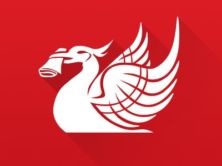
(Credit: Macinate via Flickr)
The UK Express misled readers when it reported a poll found 98% wanted the UK to leave the European Union immediately, before negotiations with the EU. In fact, there was no such scientific poll, but in fact, the Express ran a phone survey of its readers who had to pay to participate.
The Express’s July 26, 2016 story was headlined in print, “98% say no to EU deal,” and online, “98 per cent say NO to EU deal: Forget talks with Brussels and quit NOW, urges new poll.” The print article said it conducted a phone survey, whereas the online article called it an “online poll.”
The press regulator IPSO looked into the matter after a reader complained about its accuracy. It turned out the Express runs a daily poll, putting a question for readers in its daily paper and then reporting the results the next day. The Express had asked its readers “Should UK end all talk of deals and quit the EU now?” and 5,622 of 5,746 readers called in and said yes. “Readers had to pay to register their response to the question,” IPSO noted.
The person who complained to IPSO, Tony McDonald, pointed out it was inaccurate to suggest the phone survey actually reflected public opinion because it did require paid participation, only solicited readers of the Express who had “strong views,” and “only approximately one per cent of its readership had participated,” according to IPSO.
IPSO agreed that readers would have been deceived into thinking the survey was a real poll especially given the lack of transparency about the survey’s methodology.
“The poll had been presented as a significant political event, putting pressure on the Government to leave the EU as soon as possible, and including responses to it from senior political figures,” IPSO found. “In all the circumstances, the Committee took the view that the article gave the impression that it was reporting the significant results of a representative poll carried out by a third-party for the publication. In fact, the poll was conducted through a premium rate phoneline, which allowed a self-selecting sample of the newspaper’s readers to express their views.”
The Express has to publish a front-page reference to the ruling against it and IPSO ordered the full ruling be published on the second page of the print edition, as well as online. iMediaEthics contacted the Express for comment.







Comments Terms and Conditions